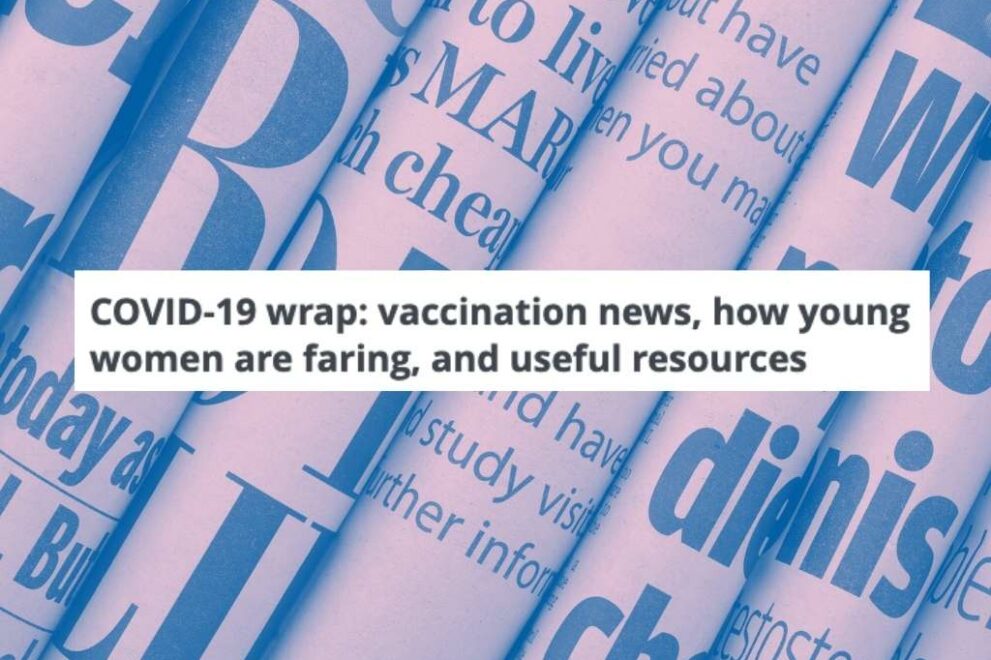Your cart is empty.


Your cart is empty.
12 May 2021 Campaigns

This article was published by Croaky May 12 2021.
Read the full article on Croaky’s website here
Introduction by Croakey: The “shocking global disparity” in access to vaccines remains one of the biggest risks to ending the pandemic, the World Health Organization’s Director-General warned this week.
Dr Tedros Adhanom Ghebreyesus said high and upper-middle income countries, representing 53 percent of the world’s population, have received 83 percent of the world’s vaccines.
By contrast, low and lower-middle income countries account for 47 percent of the world’s population but have received just 17 percent of the world’s vaccines.
Speaking to a media briefing on 10 May, Dr Tedros cautioned against complacency as the number of COVID-19 cases and deaths plateau globally, notwithstanding rapidly increasing cases numbers and deaths in the South-East Asia region.
“Any decline is welcome, but we have been here before,” he said. “Over the past year, many countries have experienced a declining trend in cases and deaths, have relaxed public health and social measures too quickly, and individuals have let down their guard, only for those hard-won gains to be lost.”
The WHO Foundation has launched a “Together for India” appeal to raise funds to support WHO’s work in India, including the purchase of oxygen, personal protective equipment and medicines.
Dr Tedros said the spread of variants, increased social mixing, the relaxation of public health and social measures and inequitable vaccination are all driving transmission.
“My message to leaders is, use every tool at your disposal to drive transmission down, right now,” he said.
“Even if your country has a downward trend, now is the time to surge your capacities. Even in countries with the highest vaccination rates, public health capacities must be strengthened to prepare for the possibility of vaccine-evading variants, and for future emergencies.”
Meanwhile, public health researcher Alison Barrett details some of the latest research news on COVID vaccination and useful vaccination resources in the latest edition of the COVID-19 wrap, as well as reporting on the pandemic’s impact on women.
Report: Loss of work, isolation and worry: the disproportionate impact of COVID-19 on young women, by The Working Women’s Centre South Australia, 29 April 2021
Young women in South Australia (SA) have experienced job losses, reduced income and work hours, and increased isolation as a result of COVID-19, according to a report launched by the Working Women’s Centre SA (WWCSA) on 29 April 2021.
The survey of 293 women in SA, undertaken between September 2020 and February 2021, also found that 71 percent reported increased anxiety, sadness and/or depression.
While some participants’ income increased due to support by JobKeeper, nearly one-third of participants experienced reduced hours and/or income, resulting in financial hardship. Some participants reported they needed to skip meals or were worried about having a place to live.
Thirty percent of participants said they were worried about losing their job, and 44 percent were concerned about future work opportunities.
Their concern may be justified. An analysis of labour force data from the Australian Bureau of Statistics (ABS) found that young women in their twenties accounted for a greater decline in labour force participation than their male counterparts in 2020.
This is likely because young women are more likely to work in retail and hospitality industries, which were among the worst impacted by COVID-19 prevention measures.
On top of this, young women are also more likely to take on unpaid caring roles than men, which often meant they had to reduce paid work or school attendance during lockdowns to care for family members.
Forty percent of the participants reported that they were worried about getting COVID-19 because of the work they do. In addition to hospitality and retail, young women commonly work in essential service jobs, such as health and aged care, and education, and therefore faced daily concerns about keeping themselves safe from COVID-19 while at work.
The findings in the WWCSA report are not dissimilar to findings from a survey of 7,000 young women aged 15 – 24 years from 14 different countries, conducted by Plan International, between June and July 2020.
Emphasising that the pandemic has impacted young women across the globe, the Plan survey found that 31 percent of young women were unemployed and 25 percent believed the pandemic would affect their future income.
While the WWCSA report highlighted that COVID-19 had impacted young women negatively in many ways, some participants highlighted that the pandemic has taught them self-care strategies, adaptability and provided them an opportunity for clarification about their career goals.
This report offers important insights into the gendered impact of COVID-19.
Some key recommendations were identified through the survey and consultation process:
Maddie Sarre, Project Officer at WWCSA, said:
We have an opportunity through the COVID-19 recovery to improve the economic prospects of young women through the creation of secure jobs in sectors which employ a high proportion of women.
Let’s make sure there are good, secure jobs for young people so that those who returned home from interstate due to the pandemic will be able to stay.”
Read the full report here.